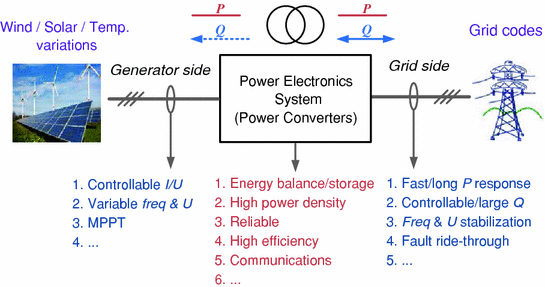
Role Of Power Electronics In Power Systems. In future power systems where most of the generators and loads are connected via power electronics virtual synchronous machines VSMs will become the main inertia provider. Power electronics applications for HVDC transmission is treated at some length. This paper presents a discussion of the role of power electronics in future power systems. Power Electronics The systems and machines of our world depend on power electronics for the ability to run efficiently and sustainably.

Role of Power Electronics in Power Systems 1 Ned Mohan University of Minnesota mohanumnedu. The improvement of power semiconductors is held up as a major factor to the increased importance of this role. In broad terms the task of power electronics is to process and control the flow of electric energy by supplying voltages and currents in a form that is optimally suited for user loads. DER Systems and their Power Electronic Coupling In this paper the DER systems presented are classified in the. An overview of wind fuel cell solar based energy conversion systems has been presented. Power electronics is in the early stages of significant technological opportunities which will greatly enhance the role and value of electricity in all aspects from generation to the end of use.
Figure 1-1 shows a power electronic system in a block diagram form.
Power electronics represents an enabling means in enhancing the role and value of electricity. The improvement of power semiconductors is held up as a major factor to the increased importance of this role. A single channel diagram of the ISS electric power system EPS shows a DC network of PV solar arrays batteries power. Power electronics applications for HVDC transmission are discussed. Power electronics can also play a significant role in enhancing the performance and efficiency of PV systems. The role of power electronics in future power systems is considered.